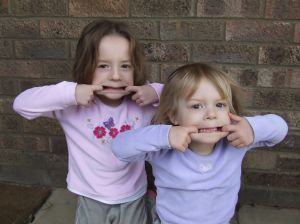One of the most basic forms of childhood courtesy is learning to use the words “please” and “thank you”. This is literally one of the first lessons in manners that your child can learn and also one of the most important parts of interpersonal communication. As adults, we may forget to use the words more often than not, but we know when we should be doing it and we return to those phrases again and again when we particularly want something. Our children should be no different.
The use of these words will make socialization a lot easier. They will be among the first things that we teach our children when it comes time to teach them to think about other people rather than themselves. We tell our kids that these are the magic words that will get them what they want- and they literally are magic to young children.
How Can You Teach Your Child to Say Please and Thank You?
Children can learn to say some form of the words themselves as soon as they are able to begin trying to form words at all. They will never try to do so without your help, however. If you want to teach your child to be polite, then you must first model the behavior you want to see. Young children are fascinated by what you do and will learn to mimic you early on. If your child hands you something, make a point of saying thank you every time. If you ask someone for something, then make a point of saying please.
Let's face it, it make take you some time to get into the habit of actually saying these things instead of assuming they are implied. Once you have, though, your child is getting a consistent message from you. Don't be surprised if they start to repeat the words back. At this point in their development, your child is too young to know what these words mean. Nevertheless, it is up to you to praise them for using them appropriately. As you begin to do that, you will train them when to use the magic words. Over time, you child will come to know their meaning almost instinctively.
Encourage Your Child to Continue Using the Magic Words
As your child gets older, it will be up to you to continue what you have started. It is important to be consistent with the messages you are trying to send about manners. For that reason, you should begin to demand appropriate use of the words whenever necessary. If your child asks for something and does not say please, then remind them to. You can tell them to use the magic words or ask them “What do we say?”.
Either way, don't let your child off the hook. The same goes for saying thank you. Your child is young and they will forget from time to time. It is up to you to help them remember. If you can do that, you will have succeeded in teaching your child their first and most important manners.
Once your child is old enough to know how to say please and thank you without prompting, be firm in your expectation that those words will be used. It isn't necessary to take away privileges or issue some other form of punishment just because your child forgot to say please or thank you. Rather, firmly remind them of their manners.
When your child is going to do something without you present, remind them of their manners before leaving. One of these reminders should be about saying please and thank you. Hopefully, as your child gets older, you won't have to issue these reminders. Your child should take the initiative to be polite on their own.
With the right coaxing and some practice, your child will be saying please and thank you by default in no time at all. Remember to always set a good example by acting how you would want them to act. Even when your child is older, you should still be setting a good example. Otherwise, your child will view it as an avenue to act out. After all, if an adult can do it, why can't they?
